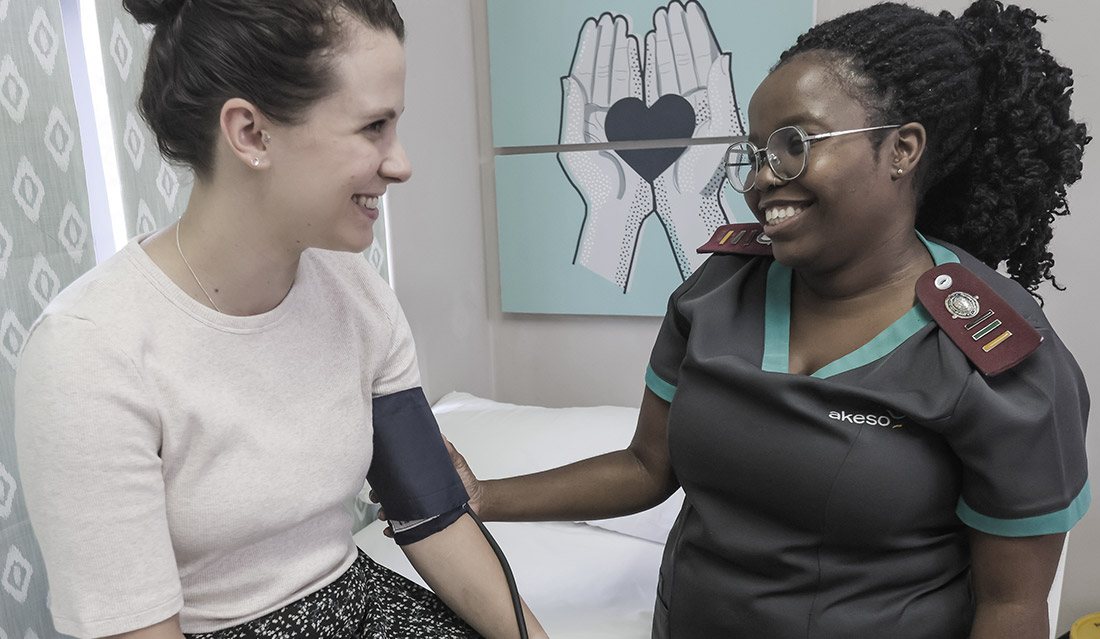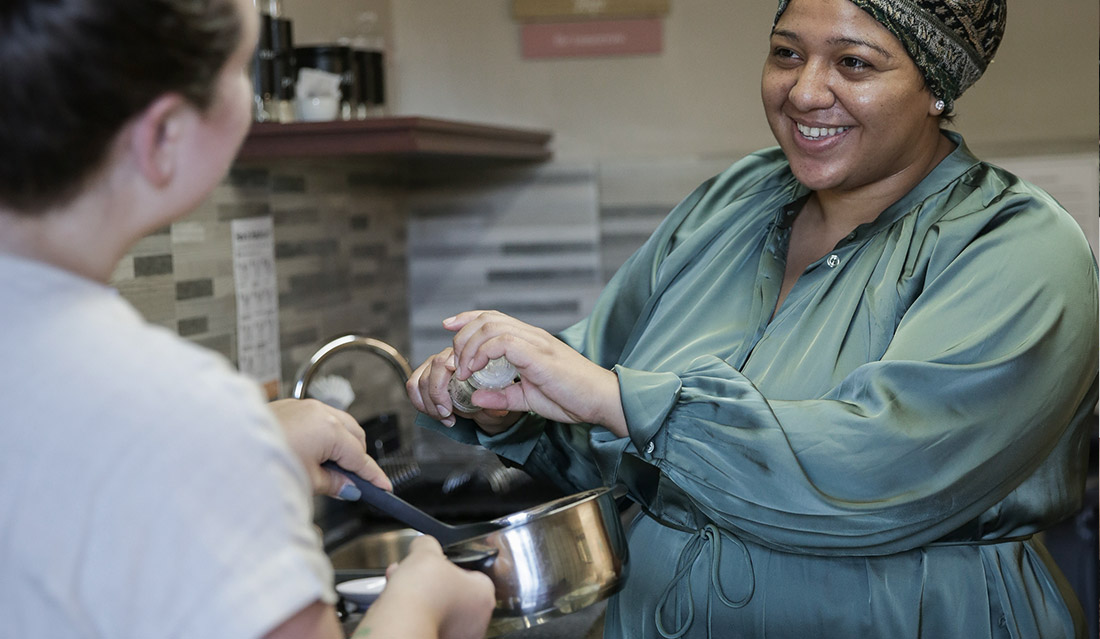At Netcare Akeso Montrose Manor, we offer a structured and comprehensive 12-week residential treatment programme designed to support individuals in their recovery from eating disorders. Our programme is grounded in evidence based therapies and provides a holistic approach that addresses the biological, psychological, relational, and spiritual aspects of eating disorders.
Our treatment programme supports individuals struggling with:
- Anorexia Nervosa
- Bulimia Nervosa
- Binge eating disorder
- Other specified/unspecified feeding or Eating Disorders
We also address co-occurring psychiatric conditions, including:
- Mood Disorders, including depression and anxiety
- Obsessive-Compulsive Disorder (OCD)
- Post-Traumatic Stress Disorder (PTSD)
- Substance Use Disorders
- Personality Disorders
Our clinical team provides individualised care, ensuring that each client’s specific treatment goals and needs are met. Get to know the team.
Our programme
Our programme offers three phases that support a client’s recovery journey. Each client is considered individually for their readiness to move to the next phase of their process and is guided to achieve their unique therapeutic goals in each phase.

PHASE ONE: Stabilisation and primary intervention
This initial phase is focused on stabilising eating behaviours and providing emotional support. Clients receive close supervision and guidance as they integrate into the programme.
- Supervised meals and snacks with dietetic support
- Medical and psychiatric assessments with ongoing monitoring
- Individual therapy and case management
- Dialectical Behaviour Therapy (DBT) and emotional regulation skills

PHASE TWO: Insight and recovery skills
With stabilisation achieved, clients move into deeper self-exploration and skill building to develop sustainable recovery strategies:
- Advanced processing groups for emotional insight and interpersonal development
- Intensive therapeutic processing support in individual sessions
- Family therapy sessions to explore relational dynamics
- Exposure therapy, including supervised shopping and restaurant outings
- Self-directed reading and therapeutic assignments
- Expressive arts therapy (art, drama, movement-based interventions)
- Deepening of emotional regulation through mindfulness and emotional intelligence groups
- Body image therapy and movement therapy
- Psychoeducation on nutrition, trauma, self-esteem, and mental health
- Support groups and introduction to 12-step recovery principles
- Fellowship meetings and recovery coaching

PHASE THREE: Integration and relapse prevention
This final phase prepares clients for independent living, ensuring they can apply the tools learned during treatment in real world settings:
- Exploration, implementation and processing of skills and concept learned in a more independent and life-orientated phase
- Moving towards independent management of meals and snacks
- Comprehensive relapse prevention and discharge planning
- Voluntary community service, study, or skill building activities
- Practical exposure therapy (meal prep, budgeting, social integration)
- Strengthening support networks and aftercare planning
Have a look at a day in Netcare Akeso Montrose Manor.
Specialised programme components
More than just shape
In our programme we help clients develop a balanced and healthy relationship with exercise, incorporating activities such as yoga, pilates, and swimming under the guidance of a biokinetics specialist.
More than just weight
Although weight restoration is a crucial element of eating disorder recovery at Netcare Akeso Montrose Manor, we believe that a healthy relationship with food and recovery orientated behaviours will support clients in long lasting recovery. Clients work with a registered dietitian and the team to develop healthy eating patterns and challenge distorted food beliefs through groups, meal planning, food shopping, therapeutic activities, and outings.
More than just getting better
Healing is a comprehensive journey that goes beyond physical recovery. It is spiritual and deep, offering liberation from obsessive thoughts and the possibility of a new life. Through a combination of educational, psychological, and practical approaches, alongside embodied practices like yoga and meditation, clients experience holistic healing. This process fosters inner peace and balance, helping clients reconnect with themselves and embrace a life of freedom and authenticity.
More than just the client
Eating disorders impact families, and we believe recovery must involve loved ones. Our programme includes:
- Family therapy sessions
- Educational workshops on eating disorders
- Weekly family support groups
- A structured relapse prevention plan for families
- Ongoing post treatment family resources
More than just the admission
Recovery extends beyond residential treatment. Netcare Akeso Montrose Manor offers a free online aftercare support group to provide continued guidance and connection post discharge. Clients are supported to develop comprehensive aftercare plans that help them continue the work with their previous, or newly established outpatient teams.
Our 12-week residential programme is designed to provide clients with a strong foundation for lasting recovery. By integrating structured interventions, compassionate support, and personalised care, we empower individuals to reclaim their lives and develop a healthier relationship with food, their bodies, and themselves.
If you are wondering if this is the programme for you, find out more about arranging an admission.